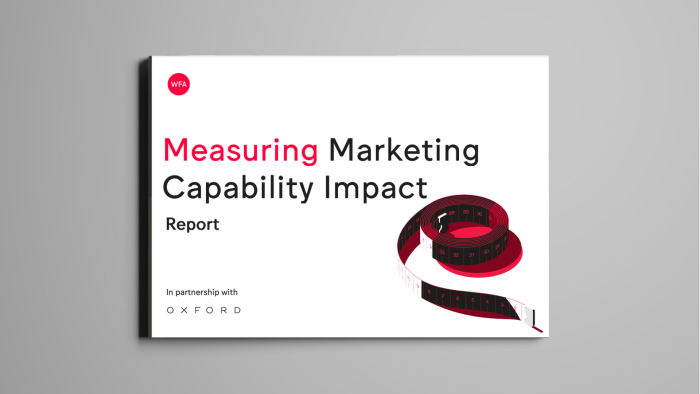Get analysis, insight & opinions from the world's top marketers.
Sign up to our newsletter.
Proving the impact of capability building is vital, says WFA Associate Director, Global Marketing Services, Julia Kraft, as she outlines the latest report from the WFA Marketing Capability Forum.

A marketer attends a training session, they learn new skills and apply them in their day-to-day role. As a result, their own and their teams’ behaviours change and the company sees improved effectiveness and ultimately achieves its financial aims and goals. Brilliant! Now the only job left to do is to prove the link between the learnings and business results… *Sigh*
Even with a strong belief in the value of capability building, there’s a problem that won’t go away: if you don’t know what you’re getting back from your investment, how long can you reasonably expect to hang on to your existing budget, let alone extend it? There’s more data available than ever and yet, the search for the Holy Grail of a reliable ROI model continues.
Many factors conspire to make it difficult to measure Marketing Capability, not least that formal training programmes are just one way we learn and it’s not just marketers or marketing that contribute to business performance.
An initiative by the WFA Marketing Capability Forum and strategic partner Oxford sought to identify and define the best and next suggested practices in this space and codify practical learnings for capability leaders to embrace.
Measuring Marketing Capability Impact explores these issues through 13 in-depth interviews with marketing capability practitioners combined with insights from our forum meetings. We explored the current landscape, delving into topics such as measurement practices, common challenges and aspirations for improvement.
Here is what we learned:
It is undeniably difficult to make a direct connection between improved marketing capability and better business performance. It’s the gap all capability leads want to address, regardless of current expectations from their business on what they report. Many are already using elements of a pragmatic way forward.
Our report proposes a solution through use of surrogate results measures, so that where positive progression in holistic enablers and topic-specific outcomes can be measured ahead of improved business performance. That will make a clear case for a contribution.
The key is to get started, set benchmarks and measure consistently over time.
Download the full report here to uncover actionable insights and practical guidance for enhancing your organisation's marketing capability measurement practices.
To learn more about how you can engage with the Marketing Capability Forum get in touch with Julia Kraft.
For more information or questions, please contact us

